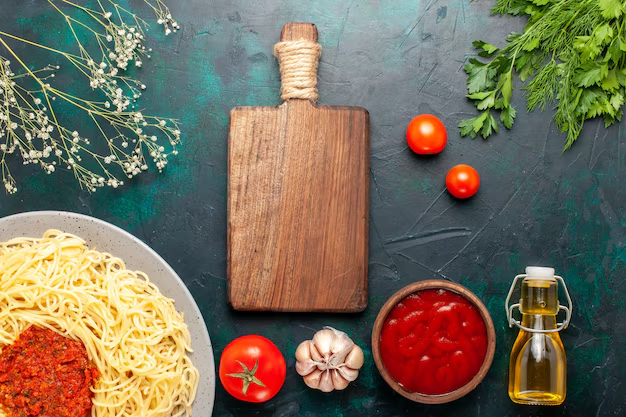Preserving Your Pasta Perfection: How Long Can Opened Spaghetti Sauce Last In The Refrigerator?
Imagine you’re halfway through making a delightful Italian dinner when you remember that half-used jar of spaghetti sauce tucked away in your fridge. You pause, wondering, "Is it still safe to use?" Understanding the shelf life of opened spaghetti sauce in the refrigerator is crucial not just for ensuring food safety, but also for getting the best flavor out of your delicious pasta dish. In this comprehensive guide, we’ll dive into how long your favorite pasta sauce can safely sit in the fridge, and offer some closely related insights on storage techniques, spoilage signs, and more.
How Long Can Spaghetti Sauce Last Refrigerated?
The general consensus on refrigerated spaghetti sauce is that once opened, it typically lasts anywhere from 5 to 7 days in the fridge. This duration can vary slightly depending on the type of sauce—whether it’s a store-bought jar or homemade—and how it's been stored.
Store-Bought vs. Homemade
Store-Bought Sauce: These varieties often contain preservatives that help inhibit bacterial growth, giving them a slightly longer shelf life when stored properly. Always check the lid for specific storage instructions.
Homemade Sauce: Without added preservatives, homemade sauces tend to spoil more quickly. Always aim to use them within 3 to 4 days for the best quality and safety.
Key Factors that Affect Shelf Life
Storage Temperature: Your refrigerator should be set below 40°F (4°C) to effectively slow down bacterial growth.
Storage Container: Ensure your sauce is stored in an airtight container, which minimizes exposure to air that can speed up spoilage.
Cleanliness: Use a clean spoon to transfer sauce from the jar to avoid introducing contaminants.
Extending the Life of Your Sauce: Proper Storage Techniques
Keeping your spaghetti sauce fresher for longer starts with effective storage techniques. Here we explore some practical steps to ensure you’re optimizing your sauce's shelf life.
Airtight is All Right
Use airtight glass or plastic containers to store your sauce. These materials do not impart unwanted flavors, which can sometimes occur with aluminum or tin.
Cool Properly
Before storing, ensure your sauce has cooled completely. This prevents condensation inside the container, which can encourage mold growth.
Label and Date
For better management, always label your containers with the date of opening. This helps you keep track of freshness and avoid any food safety mishaps.
Signs Your Sauce Has Spoiled: When to Say "Arrivederci!"
Being aware of the spoilage signs ensures you’re always enjoying the best quality and avoiding any foodborne illnesses.
Warning Signs
- Off Smell: A sour, unpleasant aroma is a strong indicator that your sauce has expired.
- Mold Growth: Visible mold is a clear, absolute sign to discard the entire contents as it could have spread unseen.
- Color Change: A significant shift in color can suggest oxidation or spoilage.
- Texture Changes: If the sauce is overly watery or separates significantly, it may be time to dispose of it.
Creativity in the Kitchen: Using Leftover Sauce
Maximizing your opened spaghetti sauce often calls for a bit of creativity. When you’re working with limited fridge time, use these culinary ideas to make the most of what you have.
Quick and Easy Recipe Ideas
- Pizza Sauce: Spread it over dough for a quick homemade pizza.
- Chili Base: Mix the sauce into a pot of chili for added richness.
- Stuffed Peppers: Use it as a filling base mixed with rice, meat, or veggies.
Freezing for Future Use
Freezing your sauce is an excellent option if you don’t think you’ll use it in time.
Steps to Freeze
- Portion: Divide your sauce into usable portions.
- Container: Use freezer-safe bags or containers, leaving some space for expansion.
- Label: Clearly mark with the date before freezing.
Useful 💡 Tip
- Ice Cube Trays: Freeze sauce in an ice cube tray for easy, portion-controlled defrosting when needed.
Being Smart with Food Storage: Broader Tips
While understanding the lifespan of spaghetti sauce is essential, applying these practices to all food storage can help maintain a well-organized, efficient kitchen.
General Storage Practices
- First In, First Out: Always use the oldest products first to minimize waste.
- Routine Checks: Regularly inspect items in your fridge and pantry to catch spoilage early and ensure freshness.
- Avoid Overcrowding: Keeping your fridge organized and not overcrowded allows cool air to circulate effectively, preserving items better.
Summary: Fast Facts & Practical Tips
Here’s a quick summary to keep on hand for managing your spaghetti sauce's shelf life.
- ⏰ Fridge Lifespan: 5-7 days for store-bought, 3-4 days for homemade.
- ✔️ Proper Storage: Use airtight containers, store below 40°F, label with date.
- ❌ Spoilage Signs: Sour smell, mold growth, color change, bad texture.
- 🎨 Creativity: Convert leftovers into pizza, chili, stuffed peppers.
- ❄️ Freezing Tip: Use ice cube trays for portion control.
By knowing how long your sauce can last and implementing smart storage solutions, you can confidently jazz up any pasta night. Always listen to your senses and trust your judgement when determining freshness, and you'll become a pro at managing food safety one delicious spoonful at a time.

